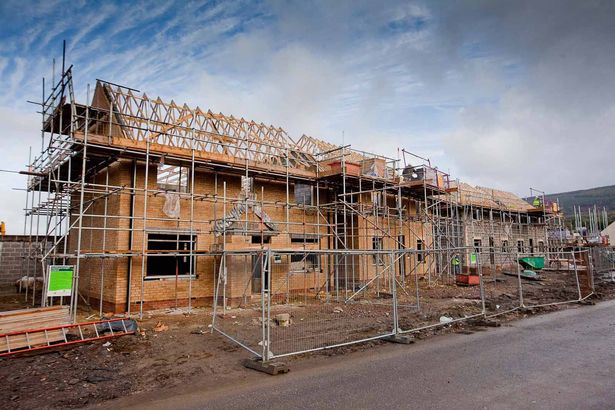Skills shortages threaten North West housing sector
Plans to tackle the nation’s housing crisis and build a million new homes have been greeted with scepticism in the North West, where skills shortages in the construction sector are undermining efforts to tackle the problem of more families than homes.
Housing minister Brandon Lewis this week unveiled the government’s one million target for new homes over the next five years.
The plan is designed to tackle the deficit reflected in figures from the National Housing Federation which show that less than 460,000 homes were built between 2011 and 2014, despite forecasts that 974,000 houses were needed.
Last year 18,285 homes were contracted to be built in the North West, far below the levels suggested by the new government targets.
The housing minister’s announcement came on the back of a report from Lloyds Banking Group which found that around a third (35%) of construction companies said they were struggling to find candidates to fill skilled job vacancies such as electricians, quantity surveyors and site managers.
It spoke to more than 100 construction companies who report that with growth accelerating, skills are their biggest challenge. Some 87% of firms said they want to take on new construction professionals over the coming year, with around 100,000 vacancies set to become available; with white collar management and blue collar tradespeople amongst the sought-after staff.
Martyn Makinson, managing director of construction recruitment business Ionic says:
“There are major efforts being made in the construction sector to tackle the skills shortages. Everyone recognises it’s inhibiting the ability to maximise on the growth opportunity and is also causing serious cost inflation in the labour market.”
“The trouble is that the recession cut the industry to the bone and removed a lot of skills and overall capability to deliver construction projects. You can’t repair that damage overnight and the major concern is that the construction industry is not recovering fast enough to keep pace with demand.
“It is an irony of our times that after enduring tough market conditions for so long the construction and housing sectors are now struggling to take advantage of the upturn. It’s good to see that the likes of the Construction Industry Training Board are making efforts to address this issue with apprenticeship programmes but in the meantime there are things that firms can do right now.
“In a candidate-driven recruitment market construction companies need to present themselves as attractively as possible. Construction companies must sell themselves to a candidate by focusing on benefits, company culture and development opportunities which, in my experience, are often far more attractive than salaries.”
The new government targets come at a time when the supply of homes for sale has plunged to its lowest levels since records started 37 years ago, according to the Royal Institution of Chartered Surveyors (RICS). It says the acute shortage of supply of homes for sale is continuing to push house prices higher.
Any first time buyer wanting to purchase a home in the North West already needs a substantially
higher than average income or be in receipt of an inheritance, according to accountancy firm KPMG.
In its report, ‘Building the Homes We Need’, KPMG says the average price of a first time home in the North West is now £131,977.
Would-be buyers need an annual income of over £26,000 before they could afford to buy a house at that price. The actual average annual wage in the region is just over £20,500.


